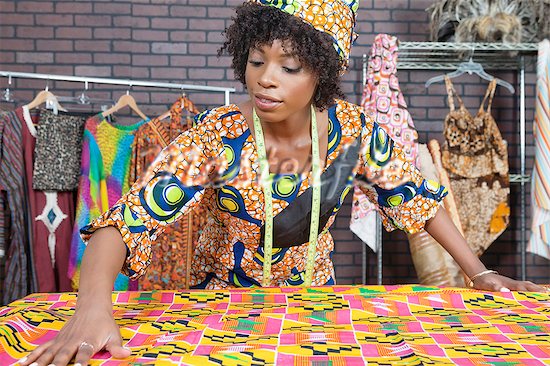By popular demand this topic is being served hot and spicy. For your reading pleasure ( or listening- if you have those automated audio books. It will be a trilogy as I tend to unearth more information than can be process sometimes and it makes sense in my head. Bear with me as I simplify it as much as possible.
These points are personal opinion from courting fashion as a career for the past 5 years. I will go ahead to give this little background because I assume that someone reading this, you, maybe, would be wondering; What my practice is… whether law, art or fashion? Fortunately or nonetheless it is my trinity and we shan’t have one without the other. I hold a professional degree (law) while tirelessly pursuing the passion (art) and now I live with purpose through fashion as expression. For this I started the brand “NOTAFLOWERGIRL Ltd.”, to hold the synergy of the law and creativity and to promote sustainable practice for the administration of art as a business, apparel and accessories production (click the link to follow http://www.instagram.com/notaflowergirlart and http://www.instagram.com/notag_fashion ) … Back from my digression.
I take to this post to share the lessons, practices and beliefs I have encountered in the Nigerian Fashion industry. Like every sector in business and services, there is a value chain a system that gives rise to a resulting deliverables. This sort of value chain segregates its sector into a cast -although mostly unspoken- on the functions of its roles and determination. The Nigerian Fashion industry adopts a usual pecking order determined by the social scales, ethnic groups, religion, environmental influence, upbringing etc .
Clothing is one of the most important human amenities. Since the fall of man from the Garden of Eden*, where it was designed for human beings to exist in nakedness before the inherent curiosity in human let to disobedience by the first man and woman . As a result of this we need clothes as a covering from harsh weather conditions, shame, decorates and promotes a sense of decency by covering nakedness. Here are 10 basic fact about what I have learnt of the fashion industry in Nigeria

SOME BASIC FACTS
- Everybody is a fashion designer in Nigeria; You better come correct because that tailor in the market puts patterns together for “Pinterest” and photocopy designers. If I got a dollar for every time I heard “…I design my own clothes” at any gathering I would be swimming in cash. Don’t get me wrong, I love it, tailoring like cooking is a life skill that everybody should acquire if they can.
- Most tailors always disappoint because most Nigerians will always bring complex cloth last minute with no intentions of paying the full price to get within a twinkle of an eye
- Nigerian tailors will generally disappoint you. Be prepared to shed a few tears by the deadline (again, learning to sew is a LIFEHACK)
- Typical Nigerian tailors do not like to tailor indecent clothing. If you bring that thing with your cleavage open to your stomach, they will close it for you. if your slit get to your bikini line it will be brought down to the knee. They are ambassadors of holiness and decency. So mind the kind of styles you give to your tailors. “Cloth na to cover naked body no be decorate am”.
- Collecting or asking a Nigerian tailor for leftover or cutout materials from their store without offering them something for the waste that would have been thrown away is a sign of “RITUALIST” . You are trying to use the cutout waste of their client’s materials to collect their clients destiny worst of all you are coming “empty-handed”. Please be guided
- Choosing a designer is mostly has nothing to do with proximity (thanks to social media) it is mow, more about satisfaction and relationships. Again, trusting that the tailor won’t be making diabolical moves with your clothing and materials is very important.
- Intellectual property in fashion over here (Nigeria) is far fetched. Even if the semi-millennials and younger youngins* are doing a great job of setting up structure and creating parameters that give honor to whom honor is due. The copying of designs is not shocking at all.
- Your regular tailor can never say no, when you show them that picture from your high-end Instagram brand screenshot. Whether they can sew it or not, they will COLLECT! , “babe on a budget” steady gambling with her slay. Sometimes its JACKPOT other times… premium tears so try to save up coins to buy the designers design and avoid stories
- Everybody plays a different yet very important role to build up this industry.
- Lastly, sustainable fashion practices have always been a major source of fashion in NIGERIA (especially thrift shopping and collecting) however, social media is about to scatter everything. For context some online online stores that claim to sell thrift actually sew up the clothing they advertise as secondhand to sell to buyers.



With this basic facts I will go to introduce you to a detailed breakdown of the fashion industry in Nigeria. explaining the ins and outs of the various categories. From manufacturing to the final users. I will be making allusions to UPSTREAM, MIDSTREAM and DOWNSTREAM sectors of the fashion business in Nigeria taking into consideration the various geo-cultural zones and the roles they play in the fashion that emanates from their community, promoting sustainable fashion practices. And further more the roles that influencers, celebrities and “big brands” play in the industry

Great read. Looking forward to the next.
LikeLike